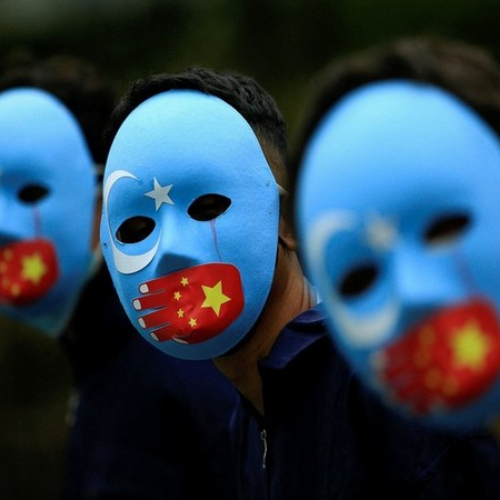In Switzerland, Tibetans and Uyghurs living in exile are facing a serious problem. They are being monitored, threatened, and pressured by agents linked to the Chinese government. A recent study, commissioned by the Swiss government and conducted by experts at the University of Basel, has confirmed these troubling activities.
The Chinese Communist regime is known for keeping tight control over its people, even those who have left the country. Many Tibetans and Uyghurs fled to Switzerland to escape oppression. However, they now find that they are still being watched. The study found that Chinese agents, often disguised as embassy or consulate staff, are active in Switzerland. They gather information and try to control exiled communities.
Some people receive threatening phone calls from China. They are asked to spy on their own community or warned that their family members back home could be in danger. Others feel pressure from Swiss authorities, especially when they face restrictions during protests or difficulties with asylum applications.
Sanctions Shock: Russian ESPO Crude Faces Declining Demand in China
Tactics of Intimidation
The study focused on events from the year 2000 to the present and included interviews with 60 members of the Tibetan and Uyghur communities. Researchers found that China’s tactics go beyond simple surveillance.
One of the most common threats is phone calls from Chinese officials. They often demand that the person receiving the call provide information on fellow Tibetans or Uyghurs. If they refuse, their families in China may face consequences. Some individuals have even been pressured to return to China, where they fear imprisonment.
Chinese agents in Switzerland work under different disguises. Many pose as embassy workers or consulate staff, while others try to blend into exile communities. Their goal is to spread fear, create divisions, and keep control over those who have fled China’s rule.
One major problem is that these tactics make exiled communities suspicious of each other. Many Tibetans and Uyghurs are afraid that someone within their group might be working for China. This is especially true for those who arrived in Switzerland recently, as they still have close family ties in China and are more vulnerable to threats.
At the same time, Swiss authorities have faced accusations of being too restrictive toward these communities. Some feel that the government limits their right to protest, especially when demonstrations against China take place near important government buildings. Others say that asylum procedures are getting stricter, making it harder for Tibetans and Uyghurs to stay in the country safely.
Switzerland’s Response and Growing Concerns
The Swiss government has acknowledged the findings of the study and published a report on the situation. It condemns the violations of human rights against Tibetan and Uyghur communities and suggests some steps to address the issue. For example, the government plans to be more careful when choosing interpreters for asylum hearings. There have been concerns that some interpreters may have links to China and could report back on asylum seekers.
Panama Says No to China: Belt and Road Agreement Will Not Be Renewed
Swiss authorities also plan to increase awareness among police, immigration officers, and other officials, so they can better identify cases of transnational repression. However, the government has not clearly stated how it will confront China over these issues. Instead, it refers to an ongoing “human rights dialogue” with China that has been in place since 1991. Critics argue that this dialogue has little real impact and is mostly symbolic.
Meanwhile, advocacy groups believe that Switzerland should take stronger action. Some want the government to create clear laws against transnational repression. Others are calling for a special office to help victims and give them legal and psychological support.
Similar problems are happening in other countries as well. Across Europe, reports of Chinese authorities targeting exiled communities are becoming more frequent. The rise of digital surveillance and artificial intelligence has made it easier for China to monitor people, no matter where they live.
Many Tibetans and Uyghurs in Switzerland feel exhausted by the constant pressure. Some say they have been speaking out about these threats for years, but little has changed. The recent study confirms their fears, but whether it leads to meaningful action remains to be seen.


